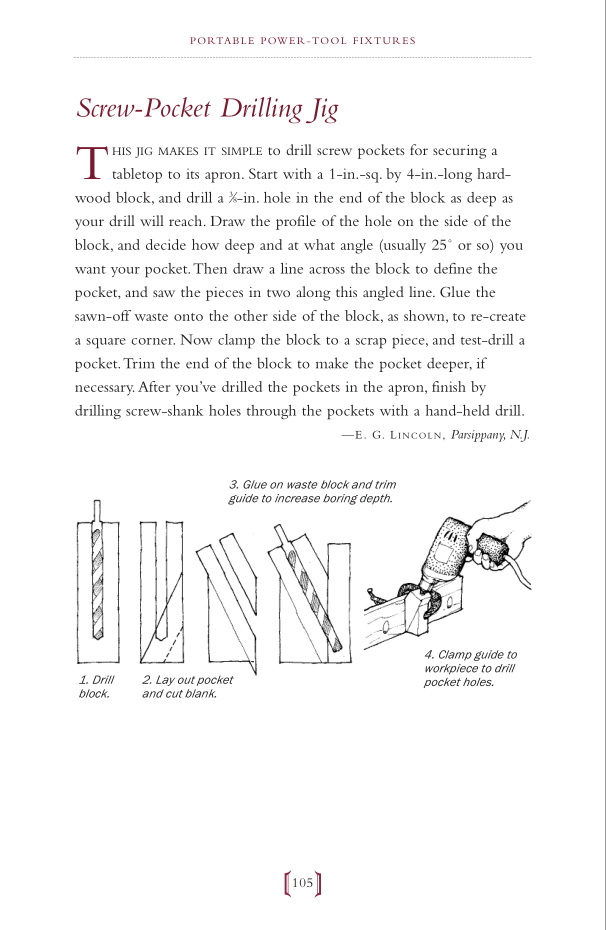ED65":2fhe45j9 said:
Eric The Viking":2fhe45j9 said:
The point is that a countersunk screw pushes sideways as well as lengthways. Pocket holes are often in endgrain or man made boards. So it's fine if you want it to pull through or punch out sideways but it won't make a very strong joint.
Okay fair point. Although I doubt the effect is pronounced enough to cause an issue in the majority of cases, granted, it could in some.
Eric The Viking":2fhe45j9 said:
As for washers, I'm sure that will work, but it's a lot of fuss when there is a simpler solution.
You place the washer in the hole before inserting the screw and driving... OMG the
extra tedium :shock:
:mrgreen:
On a serious note, for production work this could easily be seen not to be viable. But for the backyard-shed builder or DIY enthusiast it's fair to say there's no extra effort worth noting. And it could work out to be 25% to 30% of the cost of Kreg screws.
I'll happily admit to being an amateur. But with fasteners of all sorts, I learned a long time ago that "cheap" often equals "trouble". You only have to strip or snap the heads off a couple of cheap screws in difficult circumstances to instantly eliminate any saving you might make.
Dropping it into the hole first works if the hole is vertical (and downwards). Of course you can put the washer on the screw for upwards, but sideways it's 'fun' of the worst sort.
I had a big DIY project recently, involving a lot of floor repair, and I tried a range of screws from different manufacturers. There were some, nominally Pozi, that bore no resemblance to the spec, apart from having a cross in the head. The screws chewed, the drivers chewed (I only ever use diamond coated drivers, for the same reasons), it was a disaster. They were "premium" screws from a mainstream and popular manufacturer that people swear by.
Those screws wouldn't sit snugly on the driver either, even with a magnetic holder. That's my point about the washers - sideways you;ll be messing about all day, stopping the washer falling off or falling over at the end of the hole, the screw falling off the driver, etc.
Then there's the matter of the shank: having no thread and a thin shank is important for the joint to pull up properly. Short screws with un-threaded shanks are hard to find, and rarely with the narrow shank that's needed, and nowadays VERY rarely with dome head or cheese head (or similar), as the assumption is that people want the thread to the shoulder.
It's not impossible, as you say, but it's like so many things in woodwork and other crafts: you
can do stuff at very low cost, but the price you pay is hidden. For pocket holes, the Robertson head isn't essential, obviously, but it is the best there is, by far. More importantly, having the design of the screw - shape, length, thread pitch, etc. - spot on is what turns pocket holes from being a gimmick into an easy and
reliable method.
I use recycled wood, secondhand equipment, planes from eBay, I made my own bench and I sharpen my own drill bits (sometimes). I'm not one of those 'cost no object' amateurs. But I know when it's important to buy quality, or have a torrid time doing something.
I can see, and appreciate, where you're coming from, but we obviously differ on this one.
E.

































